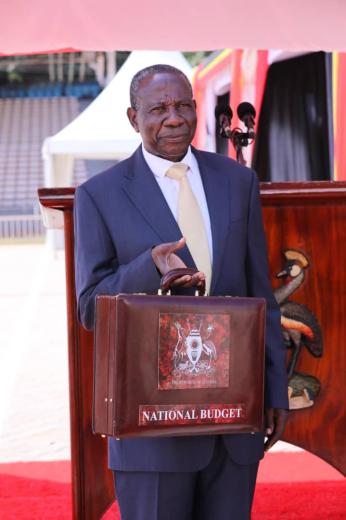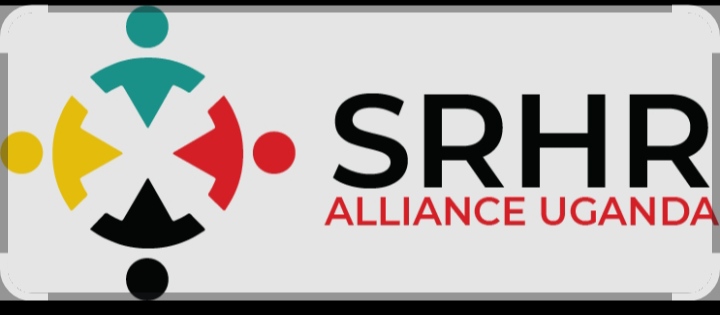
As the Ministry of Finance, Planning and economic development tables the new national budget of UGX 72,376,481,502,103 for the 2025/26 financial year, the allocation to the health sector gives people hope for improved services especially in light of the ongoing funding freeze.
This is particularly significant for areas such as sexual and reproductive health, the recruitment of health workers (especially under the integrated health system), Cancer unit, and other key priorities.
This hope follows a significant increase in the health sector budget, which has risen to UGX 5.87 trillion for the 2025/26 financial year representing 8.1% of the total national budget. This is a notable jump from UGX 2.95 trillion (4%) allocated in the 2024/25 financial year. The increase offers hope for strengthening the public health system, especially in the face of ongoing funding cuts.
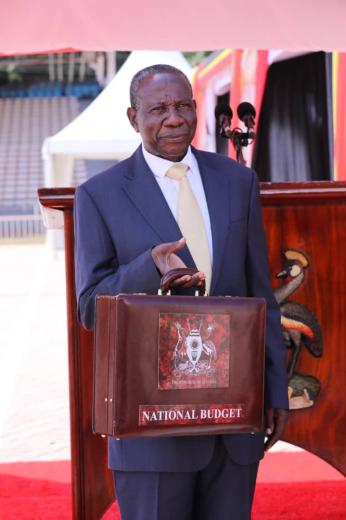
The new budget comes amid President Trump’s funding freeze, which heavily impacted the health sector. As a result, access to essential health services in some communities is no longer as available or reliable as it once was.
Many beneficiaries of HIV/AIDS services especially those without access to the internet or smartphones learned about the funding halt through rumors, leading to widespread misinformation.
As a result, some patients who had already collected their medication from health centers began rationing it out of fear of future shortages. Some chose to save their medicine for a time when it might no longer be available, others began splitting their pills in half to extend their supply, and some stopped taking their medication altogether.
As a result of the executive orders, the country experienced disruptions in the delivery of health services. In response, the government implemented an integrated healthcare system, phasing out standalone HIV clinics. Clinics now offer care for a range of health conditions including hypertension, diabetes, and other chronic illnesses under one roof, aiming to improve efficiency and reduce waste.
In this, some people living with HIV/AIDS were afraid to visit these one-stop service centers, fearing exposure in shared spaces with individuals who were not HIV-positive. They were also concerned about the risk of being treated by health workers who might lack the specialized skills necessary to care for HIV/AIDS patients.
Teen mothers living with HIV/AIDS lost hope when they visited these centers and no longer found the peer support they once relied on particularly the peer teams who used to attend to them and whom they deeply trusted. As a result, many have been reluctant to return for treatment, and some have stopped collecting their medication.
In this context, Sheirat Namayanja the Youth Country Coordinator of the SRHR Alliance and Uganda’s Representative of the Her Voice Fund Ambassador called for the integration of health budgets to effectively address the country’s health needs and promote a healthier population. She emphasized that, since national progress heavily depends on the well-being of its citizens, the government must take a deliberate approach to health budgeting. This includes carefully analyzing and identifying priority areas for funding to enhance both understanding and effective allocation of health resources.
Sheirat expresses concern that the funds civil society receives from partners are insufficient to meet all the needs of the people and create lasting impact. She emphasizes that the government should prioritize domestic funding to help the country become more self-sufficient, rather than relying heavily on external support from countries that have their own populations to care for.
Sheirat further explains that redirecting funds currently spent on luxury items toward local manufacturing of ARVs and other medicines would help Uganda prevent losing people to HIV/AIDS due to lack of access to essential treatment. “If we say we want to end HIV/AIDS by 2030, I feel we are not doing enough, we are just playing around,” she asserts.
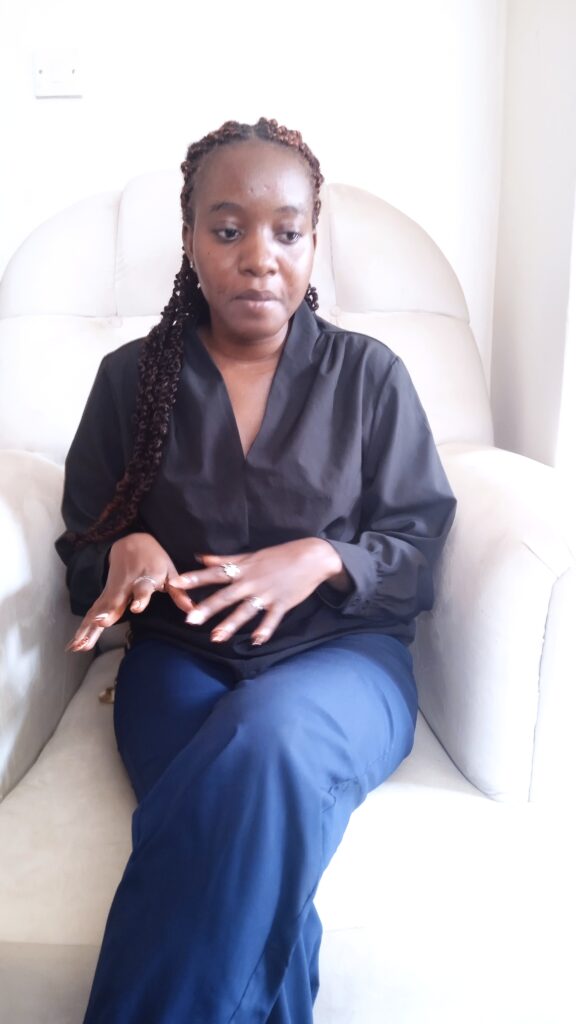
However, Dr. Daniel Kyabayinze, Director of Public Health at the Ministry of Health, notes that the integration of health centers has been effective in delivering services to people living with HIV/AIDS, as well as to other patients. He encouraged the public to continue collecting their medication as they did before the funding freeze.
He further emphasizes that Uganda has been receiving HIV treatment medicines from various sources, including the government, which supports 3,600 clinics, and approximately 7,000 clinics funded through American support and the Global Fund (GMS).
He stresses that people should continue adapting to the new integrated system and assures the public that the government will provide timely communication if any changes occur.
Similarly, Immaculate Owomugisha, Executive Director at the Centre for Women’s Justice, noted that some patients have not yet fully disclosed their HIV status to their partners. She reported receiving cases of gender-based violence (GBV) resulting from health workers unintentionally revealing this information within the integrated health system, particularly when reminding patients about their hospital visits.
She appreciates the Ministry’s efforts in implementing the integration system but urges the government to provide training for health workers attending to HIV patients at these centers.
She emphasizes the need to equip them with the necessary knowledge and skills to effectively manage and support people living with HIV, enabling them to build trust and encourage patients to confide in them. As a result, this would help prevent related conflicts and encourage more patients to continue visiting health facilities.
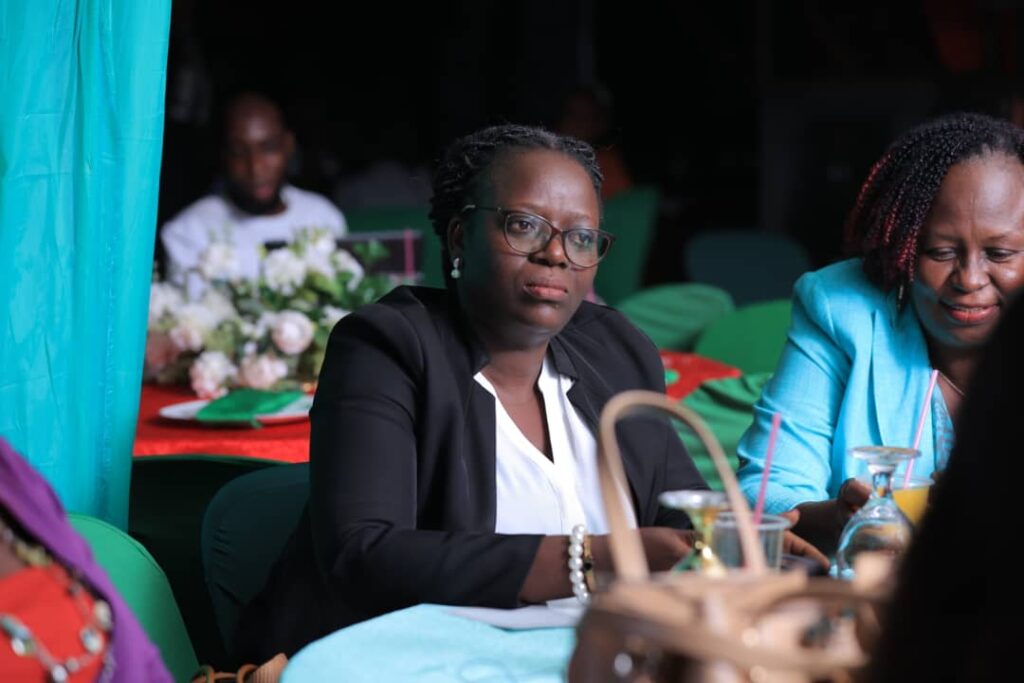
According to Freedom and Roam Uganda- FARUG, the funding freeze has severely disrupted the HIV community’s access to care and treatment particularly adherence services such as mental-health and psychosocial support, peer-led initiatives like E-medicine, and others. However, they note that even before the freeze, these communities were already struggling under the AHA bill, which fostered widespread stigma and discrimination within the health system.
Before the AHA’s passage, diverse groups could gather in safe, welcoming community spaces to receive holistic services. After the law took effect, they were forcibly evicted and lost these vital hubs.
FARUG notes that following the funding freeze, women living with HIV have reported the disappearance of counselors, and they find the new integrated health-centre system inconvenient unable to freely disclose their status to unfamiliar health workers.


